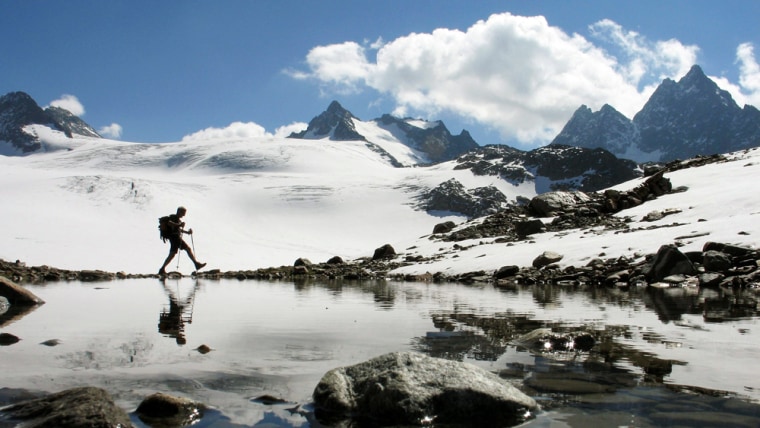Who's the farest of them all when it comes to environmental performance? A ranking released Wednesday by experts at Yale and Columbia universities lists Switzerland at the top, followed by the Scandinavian bloc (Sweden, Norway, Finland) and then Costa Rica.
The United States, for its part, came in at 39th among the 149 countries tracked in the 2008 Environmental Performance Index. That's well behind other industrialized nations like the United Kingdom (14) and Japan (21), the researchers noted. Twenty-two members of the European Union outranked the United States.
"The United States, though very high in the Environmental Health score, ranked at 107th in the Ecosystem Vitality category, below countries like Sudan and Myanmar, which have significant nonenvironmental challenges and limited resources for environmental protection," the experts said in a report accompanying the ranking. "Poor performance in the areas of air emissions and climate change reduced the United States’ score significantly.
"The EPI’s climate change metrics ranking the United States alongside India and China near the bottom of the world’s table are a national disgrace," Gus Speth, dean of the Yale School of Forestry and Environmental Studies, said in a statement.
"The United States' performance indicates that the next administration must not ignore the ecosystem impacts of environmental as well as agricultural, energy and water management policies," Speth added.
The United States had ranked 28th in 2006, when the index was first issued as a pilot project. No index was released last year.
African countries at bottom
Mali, Mauritania, Sierra Leone, Angola, and Niger were at the bottom of the list.
Released at the World Economic Forum in Davos, Switzerland, the index tracks 25 indicators in six policy categories: environmental health; air pollution; water resources; biodiversity and habitat; productive natural resources; and climate change.
"Every country has something to learn from the 2008 EPI," said Daniel Esty, director of the Yale Center for Environmental Law and Policy. "Even the top-ranked countries underperform on some issues."
Incomplete data excluded 89 countries from index. And even data gathered for countries on the list was not always easy to compare, the researchers said, citing the lack of an international monitoring effort.
"At a time when so much scientific evidence is telling us that the Earth's ecosystems are in crisis, it is inexcusable that our collective investment in environmental monitoring is so low. For some critical issues such as water it is actually decreasing," said Marc Levy, deputy director of Columbia’s Center for International Earth Science Information Network.
"When a hospital patient's health worsens," he added, "doctors increase their monitoring, and we need to do the same for the planet."
